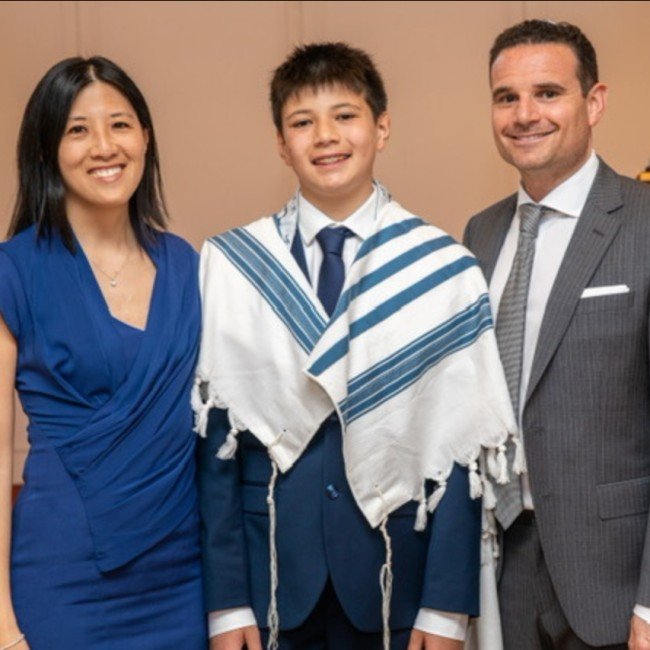
Cardiomyopathy can also affect the families of those with the condition. We spoke to Toby to find out what his experiences are as a child of a parent with cardiomyopathy.
Q: Tell us a bit about your background - what's your connection to cardiomyopathy?
A: I am an only child. I am 14 years old, and I live in London with my mum and dad. My mum was diagnosed with cardiomyopathy shortly after I was born and has always felt very supported by the charity, especially when she was first diagnosed. My mum helped run the Cardiomyopathy UK North London Support Group for a while and continues to volunteer as a Heart to Heart (telephone peer support) volunteer.
Q: What’s it like having a parent living with cardiomyopathy?
A: For me, because my mum has always had cardiomyopathy (for as long as I can remember), it seems normal because I have never known anything different. Apart from smaller things, like my mum being more tired and me having to help her walk up slopes, it really does not affect me too much.
Q: Is there anything that you’ve had to do differently as a result?
A: I have had to help my mum in certain situations. For example, when my dad is away on business trips, I sometimes help to cook dinner. Also, she can’t do things that are too active like intensive sports.
Q: Do you think your feelings about, and experiences of cardiomyopathy have changed as you’ve gotten older?
A: I think I now understand the potential causes of cardiomyopathy better – for example, that it can be a genetic condition. This is why I have to get checked out once a year. I have also come to realise how much the condition can impact the day-to-day lives of those affected.
Q: How have other adults responded to you when they’ve learnt about your situation? Is there anything people have done well, or not so well?
A: They have responded very well. Most people are just surprised that it hasn’t affected me more and that I am more open about the condition than they expected. For example, at school they have lots of on-site defibrillators and are kept aware of my medical situation.
Q: Do you have any advice for someone talking to a young person about a family member living with cardiomyopathy?
A: It is important to understand the condition in simple terms, as this will help the young person to be less afraid of the condition. It isn’t so different to having a family member without cardiomyopathy -you might have to do more to help out now and again, but they will still love you just the same.
Q: What advice do you have for other young people who have parents or loved ones recently diagnosed with cardiomyopathy?
A: I would say that while it is a condition that might not directly affect you that badly, it is important to be open and feel able to ask questions about cardiomyopathy; what it is and any practical implications it may have. For some, it may mean changes in lifestyle and the dynamics within the family. Also, not all changes caused by a diagnosis of cardiomyopathy are purely negative. For me, I think I help out around the house more than I might have otherwise, making me feel more independent. My mum has only been able to work part-time since her diagnosis, which has meant that I get to spend more time with her.
Q: Why did you choose to volunteer with Cardiomyopathy UK?
A: My mum was diagnosed with dilated cardiomyopathy soon after I was born and found great support through the charity and its members. So, I have always been aware of the charity and Cardiomyopathy UK was the chosen charity for my bar mitzvah and as part of several birthday fundraisers. When I found out about the volunteering part of my bronze Duke of Edinburgh award, I knew that I wanted to volunteer for Cardiomyopathy UK because it is really important to me and my family.
Q: What have you enjoyed about volunteering?
A: I volunteered at the Cardiomyopathy UK national conference in lots of different areas, including at the information desk and helping to coordinate the expert speakers. I especially enjoyed helping those delegates who wanted to learn more about cardiomyopathy after recently being diagnosed with the condition, guiding them to the talks and sessions that best suited their needs.
Q: What do you think you’ll take from your time volunteering with the charity?
A: I’ve seen how much volunteering can help people to get through tough times in their lives and it has inspired me to continue to be involved with the charity.